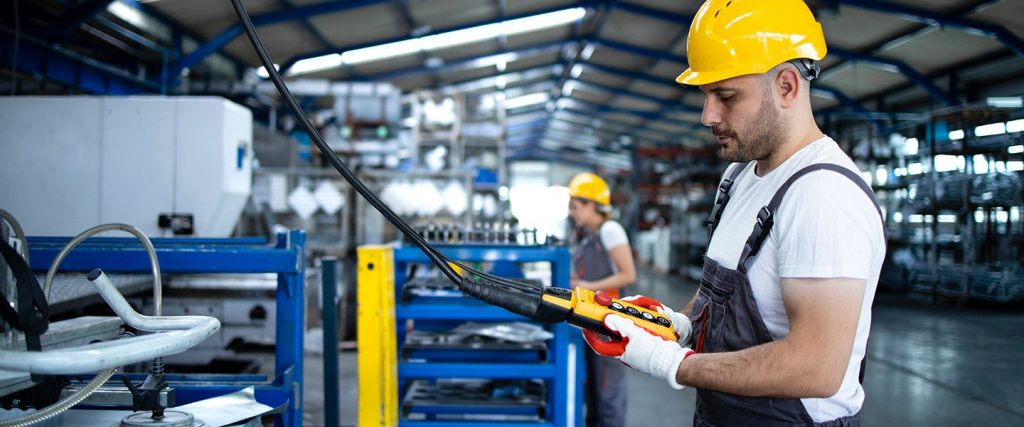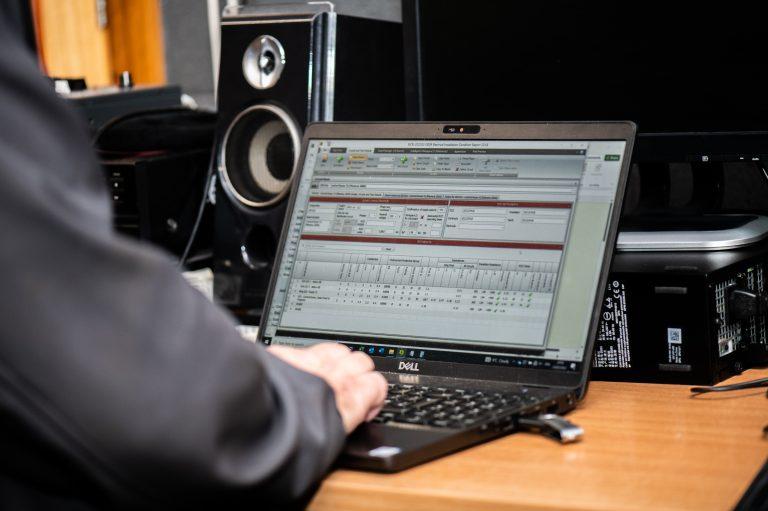It is essential to have an EICR for your workplace to fulfil your legal responsibilities to employees and visitors to your premises. We’ve put together a guide to EICRs and Fixed Wire Testing to help you keep your industrial workplace safe.
What is an industrial EICR inspection?
An EICR (Electrical Installation Condition Report) is a certificate that proves the compliance of electrical circuits and installations in your industrial workplace with current safety regulations.
During the inspection, also known as Fixed Wire Testing, a qualified engineer will carry out an inspection of your business’ electrical installations to check for any deficiencies that are not compliant with the latest workplace safety legislation.
After the inspection, you will receive a detailed report – your EICR – which includes recommendation codes C1, C2 and C3 to describe any defects in your electrical installation or circuit.
C1: Danger present. Risk of injury. Immediate remedial action required.
C2: Potentially dangerous – urgent remedial action required.
C3: Improvement recommended.
Is EICR inspection in industry a legal requirement?
Fixed Wire Testing is a legal requirement for employers. Laws with requirements that an EICR can satisfy include:
- The Health and Safety at Work Act 1974 – requires employers to ensure the health and safety of all in the work premises.
- The Electricity at Work Regulations 1989 which require precautions to be taken against the risk of death or personal injury from electricity used as part of work activities.
- The Management of Health and Safety Work Regulations 1999 – the employer is required to perform risk assessments to ensure the lowest level of danger for employees.
An EICR may also be required by insurers to provide cover for your workplace.
How often should EICR inspections take place in industry?
How often Fixed Wire Testing is required is specififed in the IET Wiring Regulations which is updated regularly. These regulations determine testing frequency using a number of factors:
- The type of installation or circuit
- Frequency of use
- The environment or external influences that the installation is exposed to
Industrial establishments, including manufacturing, warehouses and workshops, require testing every three years. Industrial environments require more frequent testing than office spaces (which are every five years) due to dust, mositure and extreme temperatures in the workplace, in addition to more complex installations to power equipment that is used constantly, therefore posing a higher risk to those in the workplace.
You should also have frequent routine inspections in between your three-yearly testing.
To minimise disruption to your operations, you can opt for testing on a rolling bases – for example 33 per cent a year to comply with three year testing – rather than testing 100 per cent of your installation at one time.
If your premises are multipurpose, such as featuring a manufacturing plant and office space, these have different testing frequency requirements.
Intersafe are leading EICR inspection providers. We carry out Fixed Wire Testing for large and complex industrial environments, including cleanroom, sensitive production areas, manufacturing and industrial units. Intersafe engineers provide detailed EICRs that can be stored, viewed, downloaded or shared via our secure cloud based Client Portal.
Request a quote for an EICR inspection of your industral workplace here.




